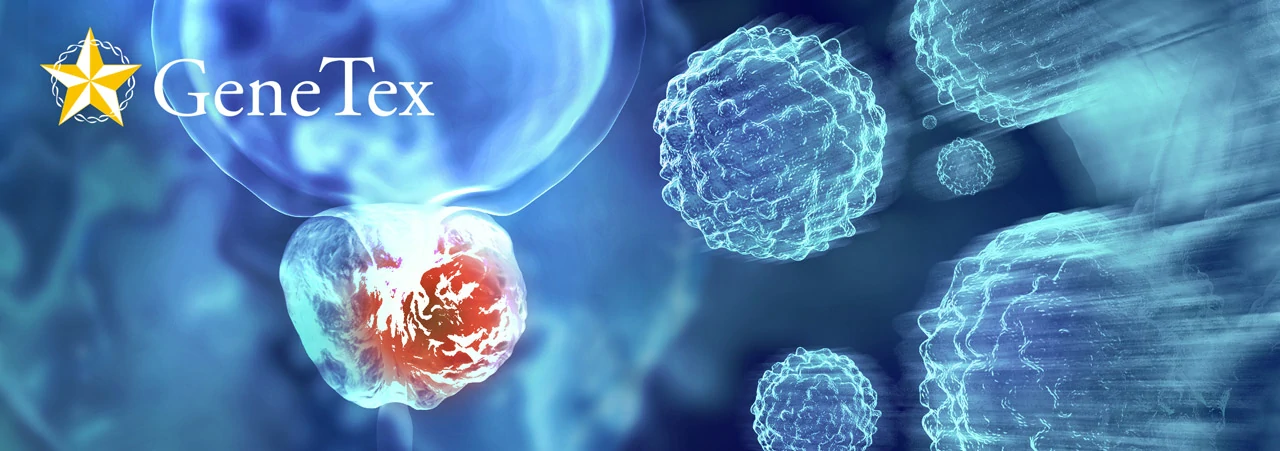Stromal cells, particularly cancer-associated fibroblasts (CAFs), in the tumor microenvironment (TME) are known to promote cancer growth and progression. This is especially true of prostate cancer (PC), where stromal-epithelial cell interactions involving paracrine signaling result in stromal-mediated development of aggressive characteristics in the tumor epithelial cells. Thus, therapeutic targeting of stromal cells is garnering more attention as a way to combat PC.
The monoamine oxidases (MAOs), specifically the two isoforms MAOA and MAOB, are bound to the outer mitochondrial membrane and metabolize biogenic and dietary amines with the subsequent generation of the reactive oxygen species (ROS) hydrogen peroxide. Previous work reported the high expression of MAOA in both PC tumor epithelial and stromal cells and its roles in various aspects of PC oncogenesis, proliferation, and metastasis. However, the role of MAOB in PC was unclear.
A new study by Pu et al. addresses the function of MAOB in stromal cells in PC development and progression (1). The authors found that MAOB was more highly expressed in stromal cells than in the tumor epithelial cells, in contrast to MAOA. Elevated MAOB expression in tumor stroma was associated with a higher recurrence rate and lower survival in PC patients, and may function in different ways to stimulate anti-androgen receptor (AR) drug resistance. By knockdown or overexpression of MOAB in stromal cells, the authors found that stromal MOAB induced the progression of PC both in vitro and in mouse models. A number of elegant approaches demonstrated that MOAB directed stromal reprogramming to a reactive protumorigenic CAF-like state through ROS generation. The authors then performed mechanistic studies to show that stromal MAOB elicits its effects on PC tumor epithelial cells through paracrine CXCL12-CXCR4/Src/JNK signaling. Interestingly, treatment with selegiline, a selective MAOB inhibitor in clinical use, reduced tumor growth in mice in a dose-dependent manner. In summary, the Pu et al. study presents a new perspective on the contributions of MOAB in the TME and suggests a possible therapeutic strategy for PC.
GeneTex offers an extensive catalog of quality antibodies and reagents for cancer biology research including the CXCR7 antibody [C1C2], Internal (GTX100027) cited in the Pu et al. study. In addition, GeneTex wants to introduce its extensively validated recombinant rabbit monoclonal CXCR7 antibody [HL2189] (GTX638193), one of many GPCR recombinant monoclonal antibodies recently added to the catalog. For more information, please see the product images below and visit www.genetex.com.
Highlighted Products
|
|
|
|
|
![JNK (phospho Thr183/Tyr185) antibody [HL1008] (GTX635799) JNK (phospho Thr183/Tyr185) antibody [HL1008] (GTX635799)](/upload/media/MarketingMaterial/Newsletter/2024/W12_ArticleAlert/landingPage_img_255x255_2024_04.webp) |
JNK (phospho Thr183/Tyr185) antibody [HL1008] (GTX635799)
|
    |
|
|
![alpha Smooth Muscle Actin antibody [HL1419] (GTX636885) alpha Smooth Muscle Actin antibody [HL1419] (GTX636885)](/upload/media/MarketingMaterial/Newsletter/2024/W12_ArticleAlert/landingPage_img_255x255_2024_06.webp) |
alpha Smooth Muscle Actin antibody [HL1419] (GTX636885)
|
  |
|
|
Reference:
- Sci Adv. 2024 Feb 9;10(6):eadi4935. doi: 10.1126/sciadv.adi4935.

![CXCR7 antibody [C1C2], Internal (GTX100027) CXCR7 antibody [C1C2], Internal (GTX100027)](/upload/media/MarketingMaterial/Newsletter/2024/W12_ArticleAlert/landingPage_img_255x255_2024_01.webp)
![CXCR7 antibody [HL2189] (GTX638193) CXCR7 antibody [HL2189] (GTX638193)](/upload/media/MarketingMaterial/Newsletter/2024/W12_ArticleAlert/landingPage_img_255x255_2024_02.webp)
![CXCR4 antibody [HL2612] (GTX639064) CXCR4 antibody [HL2612] (GTX639064)](/upload/media/MarketingMaterial/Newsletter/2024/W12_ArticleAlert/landingPage_img_255x255_2024_03.webp)
![JNK (phospho Thr183/Tyr185) antibody [HL1008] (GTX635799) JNK (phospho Thr183/Tyr185) antibody [HL1008] (GTX635799)](/upload/media/MarketingMaterial/Newsletter/2024/W12_ArticleAlert/landingPage_img_255x255_2024_04.webp)
![Androgen Receptor antibody [HL1049] (GTX636021) Androgen Receptor antibody [HL1049] (GTX636021)](/upload/media/MarketingMaterial/Newsletter/2024/W12_ArticleAlert/landingPage_img_255x255_2024_05.webp)
![alpha Smooth Muscle Actin antibody [HL1419] (GTX636885) alpha Smooth Muscle Actin antibody [HL1419] (GTX636885)](/upload/media/MarketingMaterial/Newsletter/2024/W12_ArticleAlert/landingPage_img_255x255_2024_06.webp)